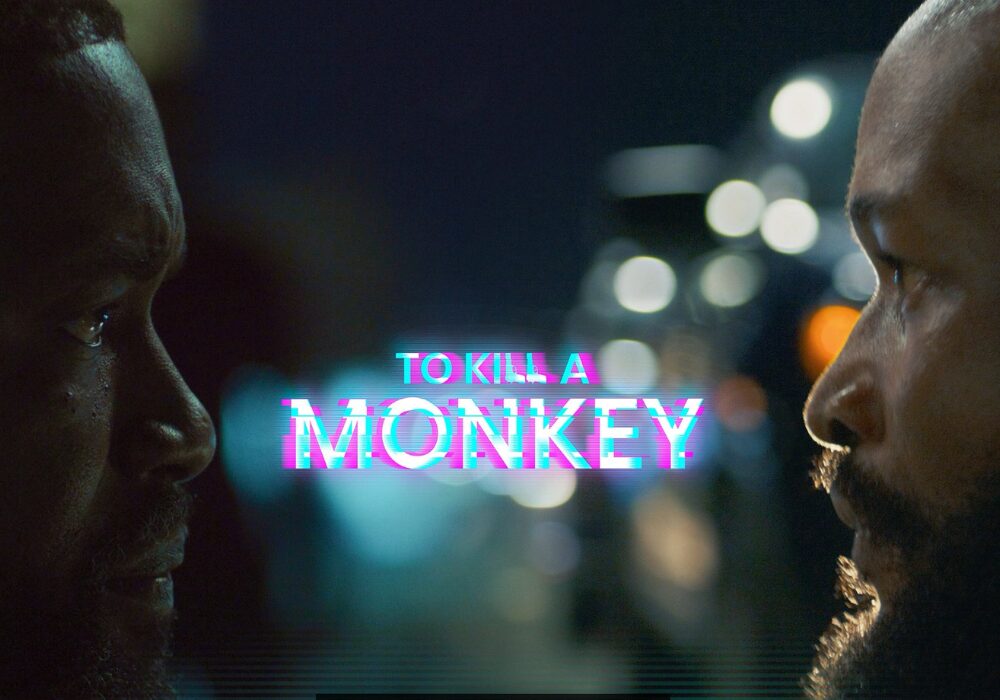Features
Bashirat Sulyman: My First Thoughts After Watching ‘To Kill a Monkey’

Kemi Adetiba is a powerful filmmaker and deserves all the attention she’s getting after the release of her new Netflix series, To Kill a Monkey (TKAM). She is known for her flexibility and range, and just like her 2021 Netflix hit series, King of Boys, TKAM was written, produced and directed by her.
The series follows the journey of Efemini (William Benson), a man who repeatedly faces brutal blows from life and is trying to navigate his way out of the overwhelming toxicity that life throws at him. In Efemini’s case, these lemons can’t even be turned into lemonade.
The series explores complex themes such as loyalty, betrayal, family dynamics, and cybercrime. Loyalty is exemplified in characters like Oboz’s trusted aide, OzzyBoy (Sunny Michael), who remains loyal to him through every scheme, without question. Betrayal is perhaps the most recurring thread throughout the series. As if life hadn’t dealt Efe enough misfortunes, being betrayed by his wife, his child, and even his mistress compounds his situation.
Family dynamics run through nearly every main character: Efe would do anything for his family; Oboz (Bucci Franklin), despite his philandering ways, adores his wife and always returns to her; and Teacher (Chidi Mokeme) dotes on his family, especially his granddaughter.
Cybercrime is the knot on which the whole story is woven. The show reminds me of the book I Do Not Come to You by Chance by Adaobi Tricia Nwaubani, where men thrive on the misfortunes of others by defrauding them with carefully packaged lies. In TKAM, that same hunger for survival drives Efe into thinking this cybercrime can be evil, immoral and against his values, but also his way out.
At its core, the story is a bold commentary on how morality often loses when pitted against poverty, especially under intense conditions. Right from the first two episodes, we’re brought into Efe’s world, his struggles, and the impossible choices he’s forced to make for his family.
There’s no second-guessing his desire to give up everything to serve his family, especially when, in the opening scene, he says: “I hated my father for all he couldn’t provide. Then I had my first child, my daughter, and I realised I should have been more empathetic to my father’s situation.” That line alone sets the emotional tone for the entire show, and it introduces us to the ironies that will eventually be encountered in the film. Which is, you can be no judge of anyone until you find yourself in their situation.
However, when I finished TKAM, it felt like this was a film written with the ending already in mind, and everything in between was filled in to connect the dots. The story progression was painfully slow, to the point where you wonder if it would have been more impactful as a two-hour film, much like the first King of Boys.
One of the strongest elements of TKAM is its casting. Every actor brings their character to life brilliantly, and you can see the effort in every performance. But the script fails to merge the different narratives and subplots smoothly. For instance, Oboz runs a fraud cell where he recruits young boys into cybercrime.
When he meets Efemini, who is portrayed as a budding “tech bro”, Oboz’s fraud cell escalates into a full-scale cybercrime enterprise targeting multinational corporations. But there’s no clear link showing how this transition happens, or whether the original fraud cells were still operating before things eventually fell apart.
Another thing is how every episode introduces a character whose story is left hanging until two or three episodes later. It weakens the narrative thread. Efemini’s daughter, Ivie (Teniola Aladese), is a prime example; she’s such a forgettable character. Even her motivation for hating her father enough to testify against him in court is questionable. Her anger feels out of place because there is no enough backstory or screen time to justify it. Editing issue, maybe?
Efe’s story represents how people often become victims of their circumstances. While I do feel sympathy for him, he still makes his choices, although under constant pressure from his family, especially his wife, Nosa (Stella Damasus), who seemed more like a burden than a partner most of the time.
The show introduces many villains, but Nosa is my least favourite. It’s not that she’s ungrateful; she’s just incapable of admitting her flaws. She’s inconsistent, emotionally manipulative, and always quick to blame others for her choices. The little compassion I had for her completely vanished when she blurted out to Efemini: “I loved you more when you were poor.” Like, come on. The same man you and your mother dragged daily for “not being a real man”?
Overall, the ending of TKAM is complete, emotionally, thematically and narratively. For all its pacing issues, the final episode pulls everything together and tries to tie up every loose end. Honestly, it couldn’t have ended any better. TKAM is easy on the eyes but heavy on the brain. To keep up, you have to pay close attention to each character and the many subplots crammed into it. While it had great potential and brilliant moments, it felt like it was trying to do too much and ended up saying less than it could have.


















